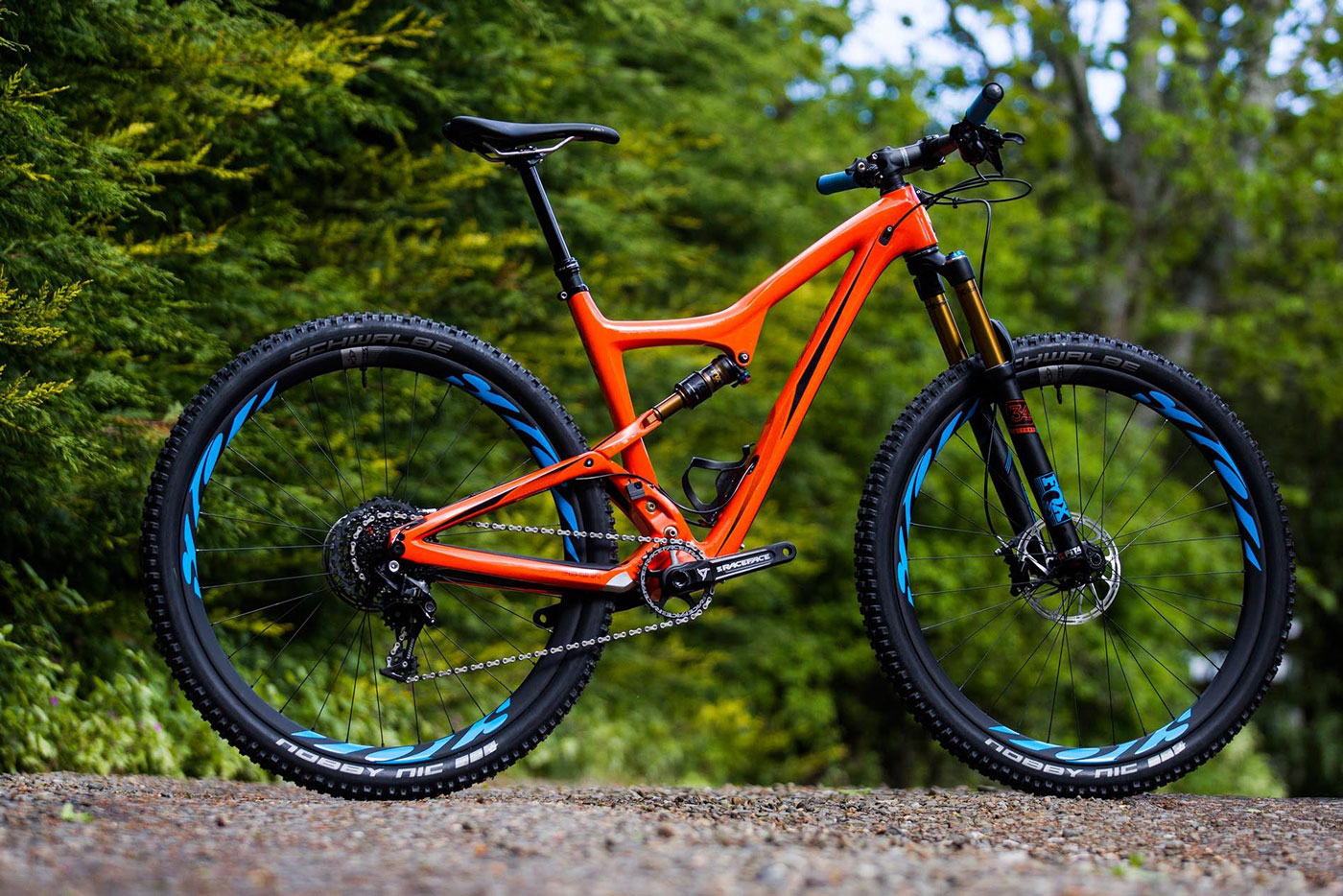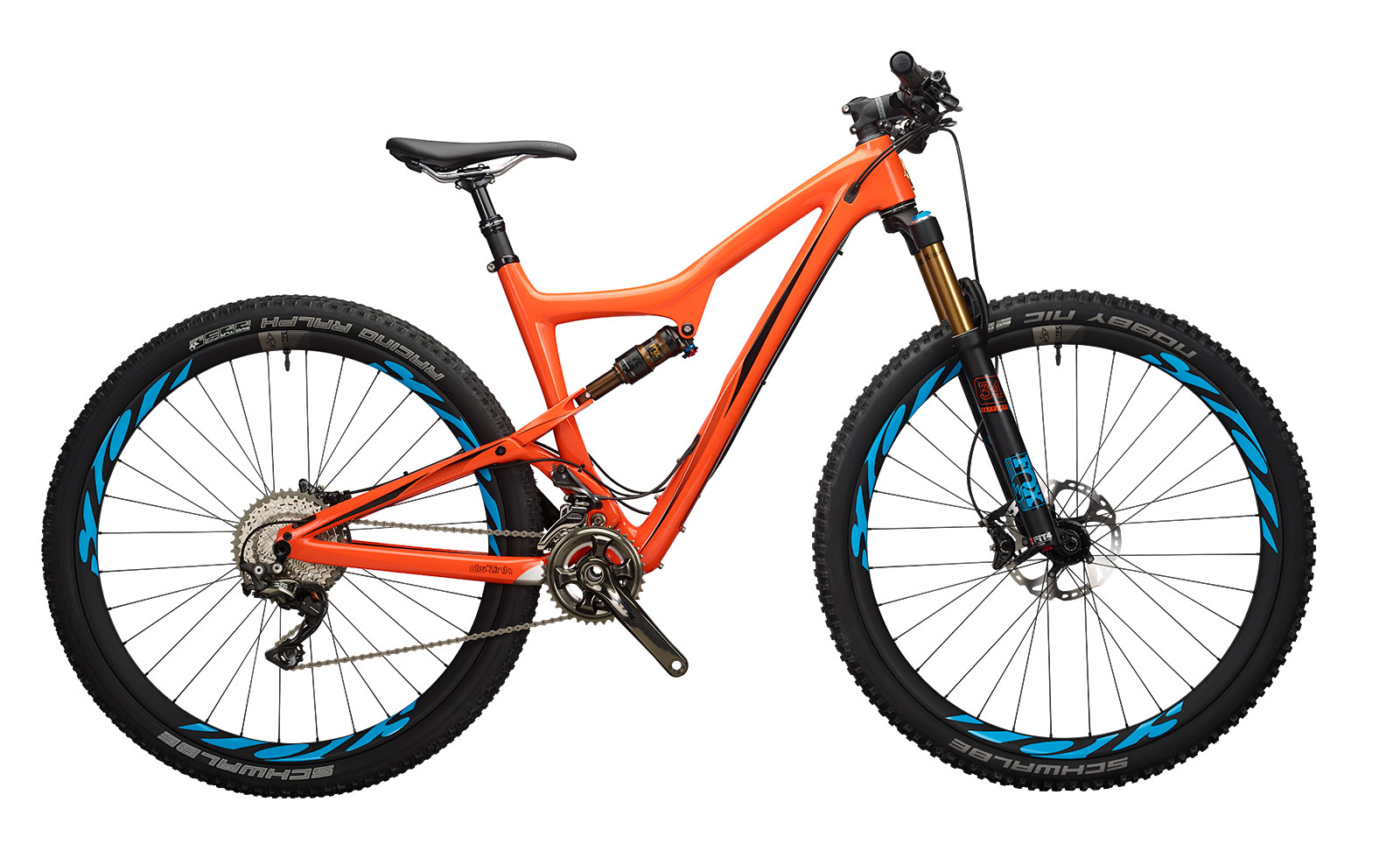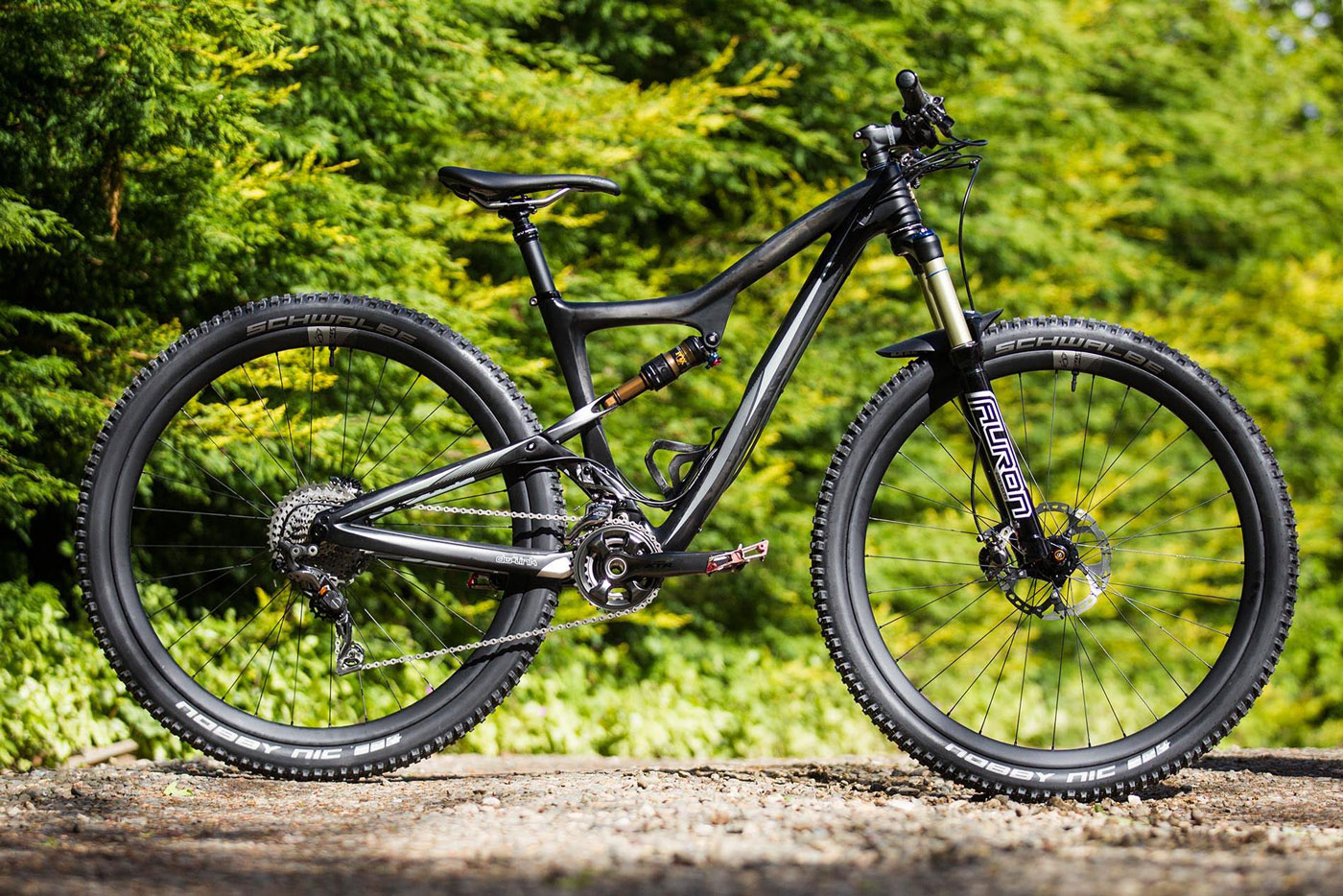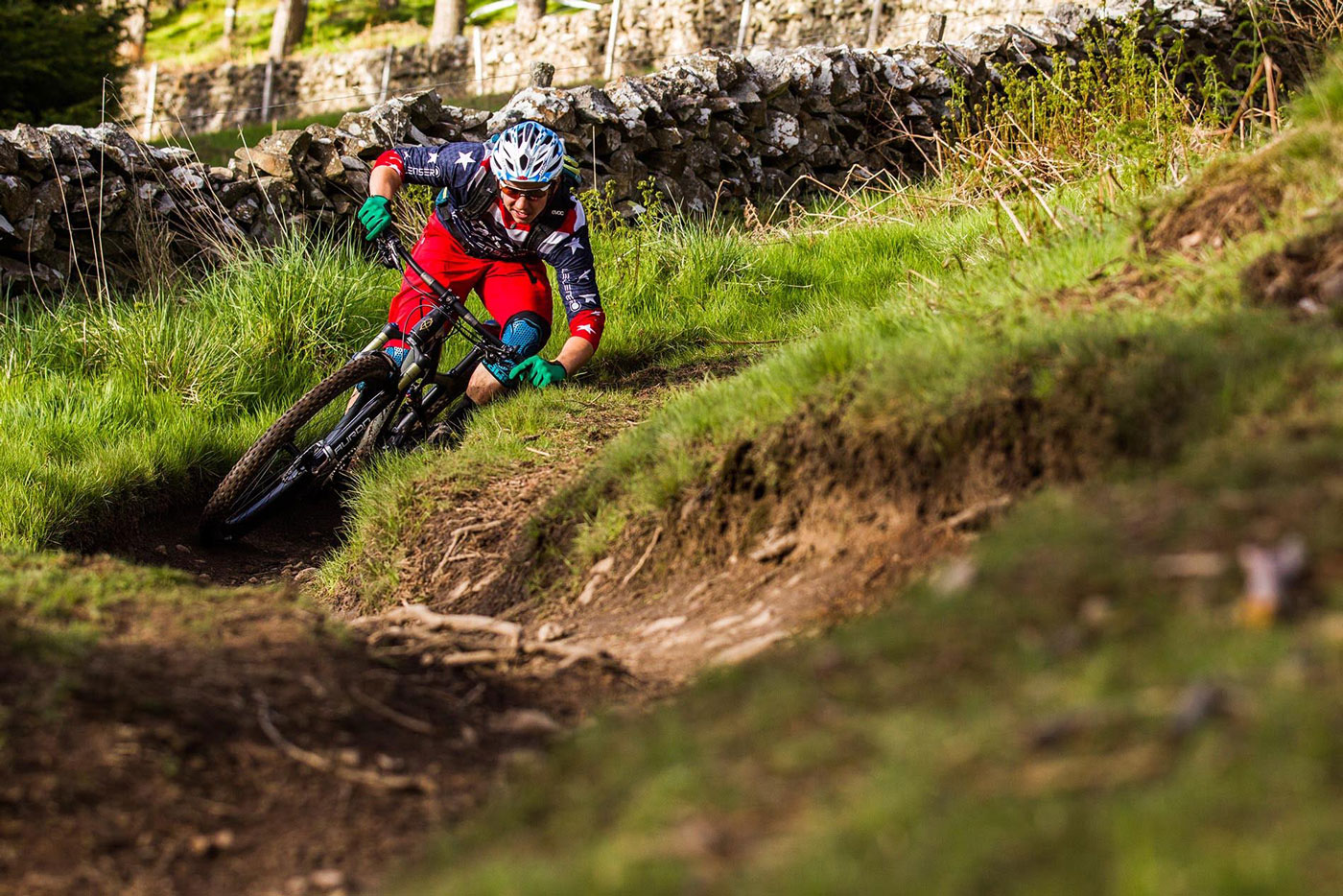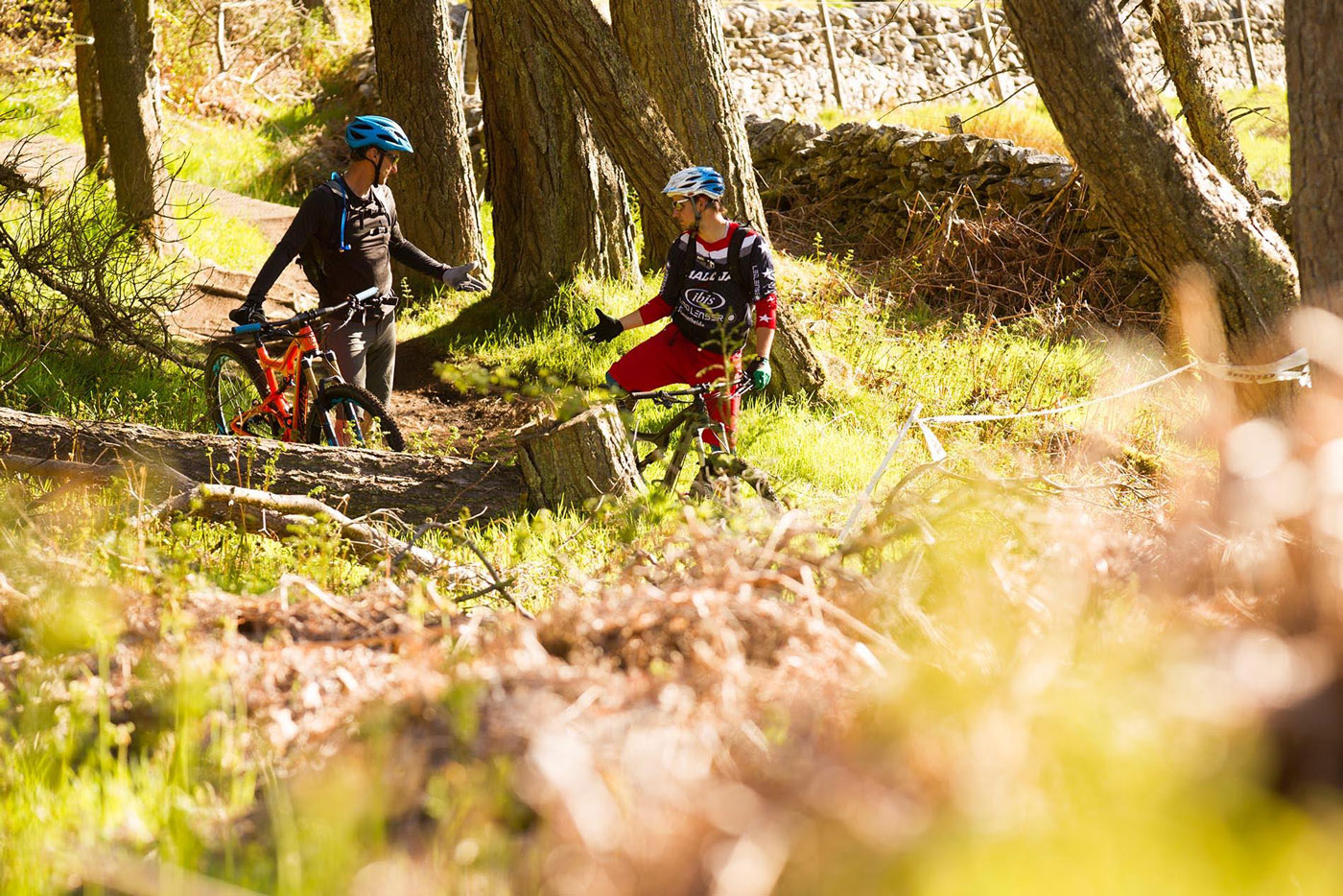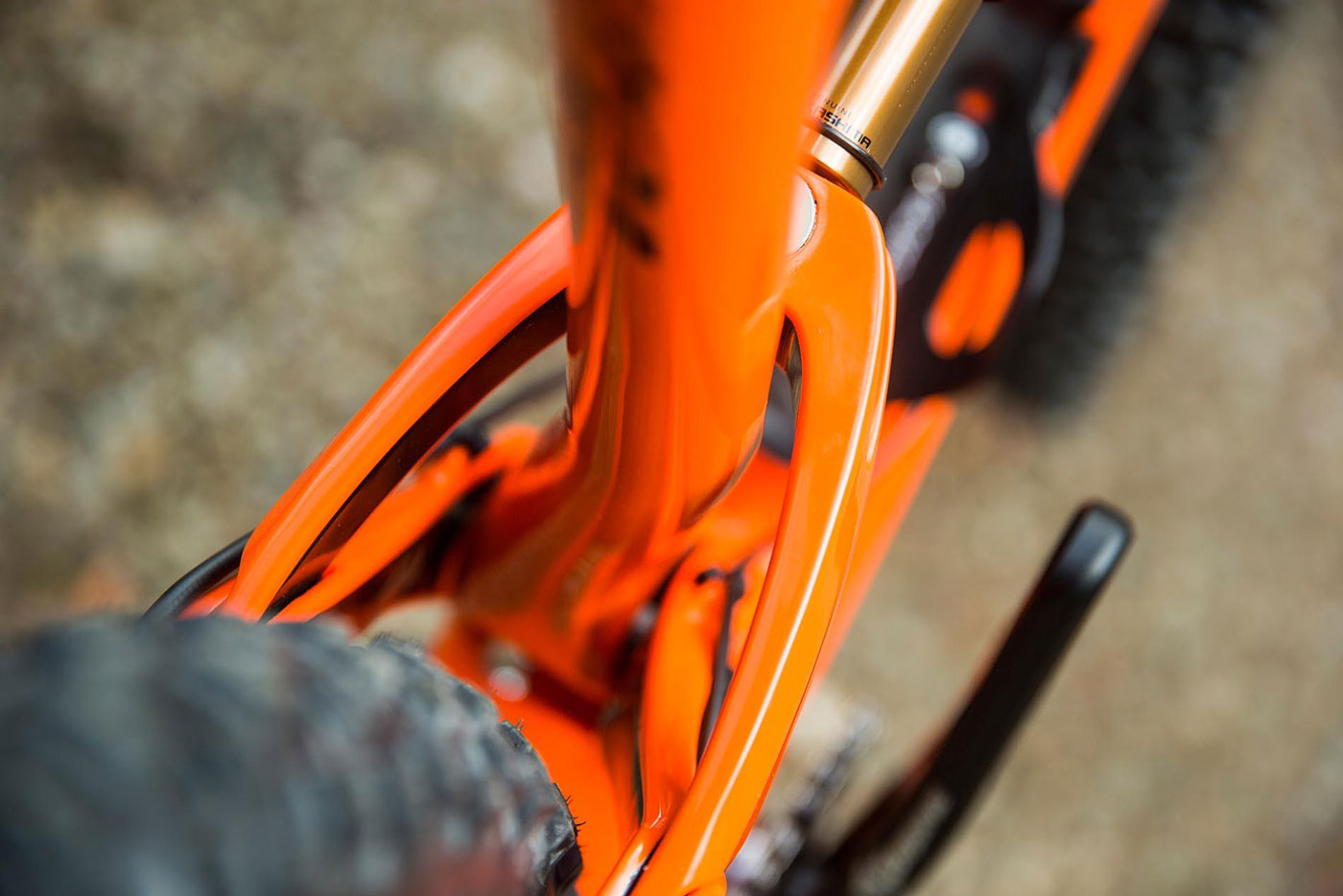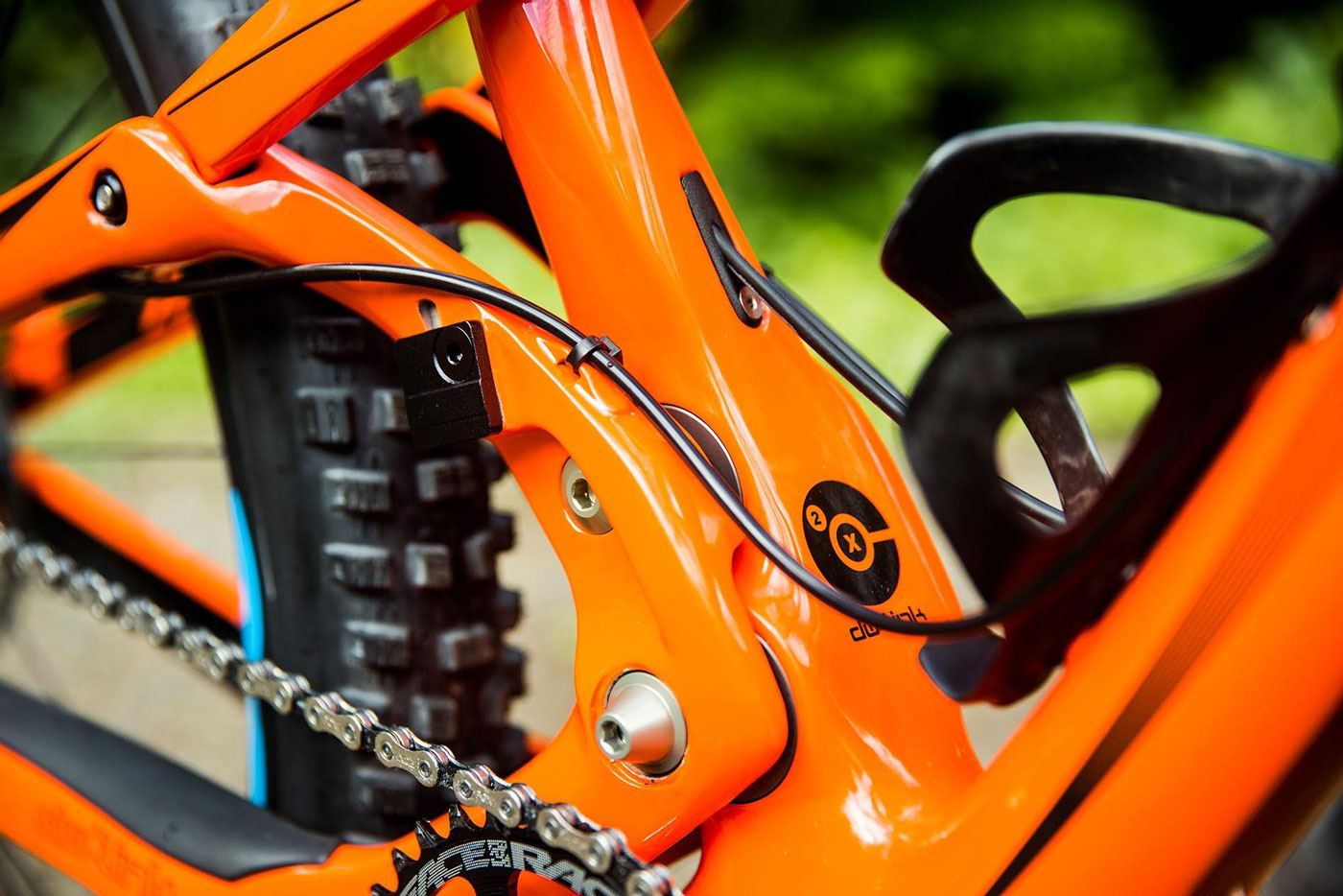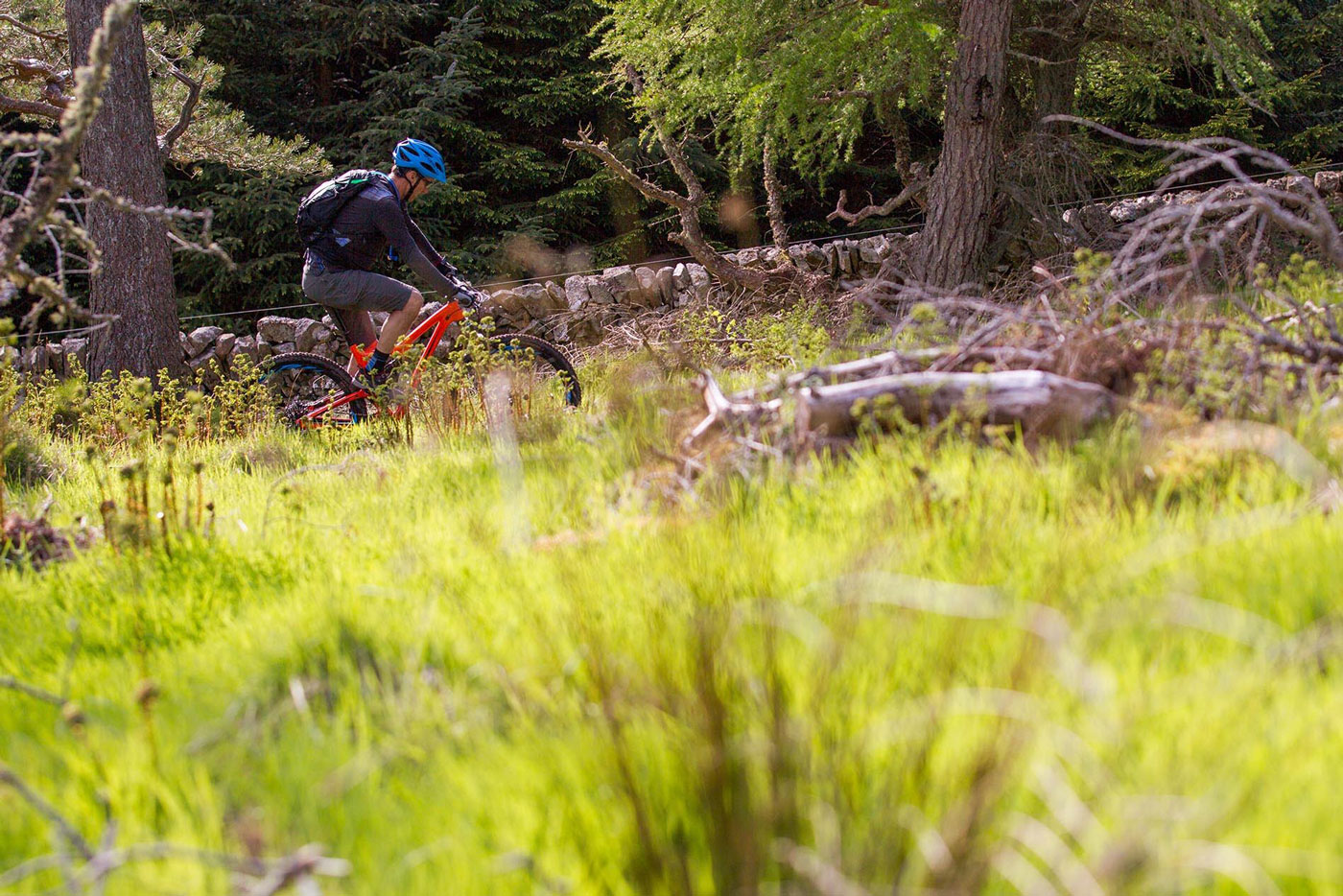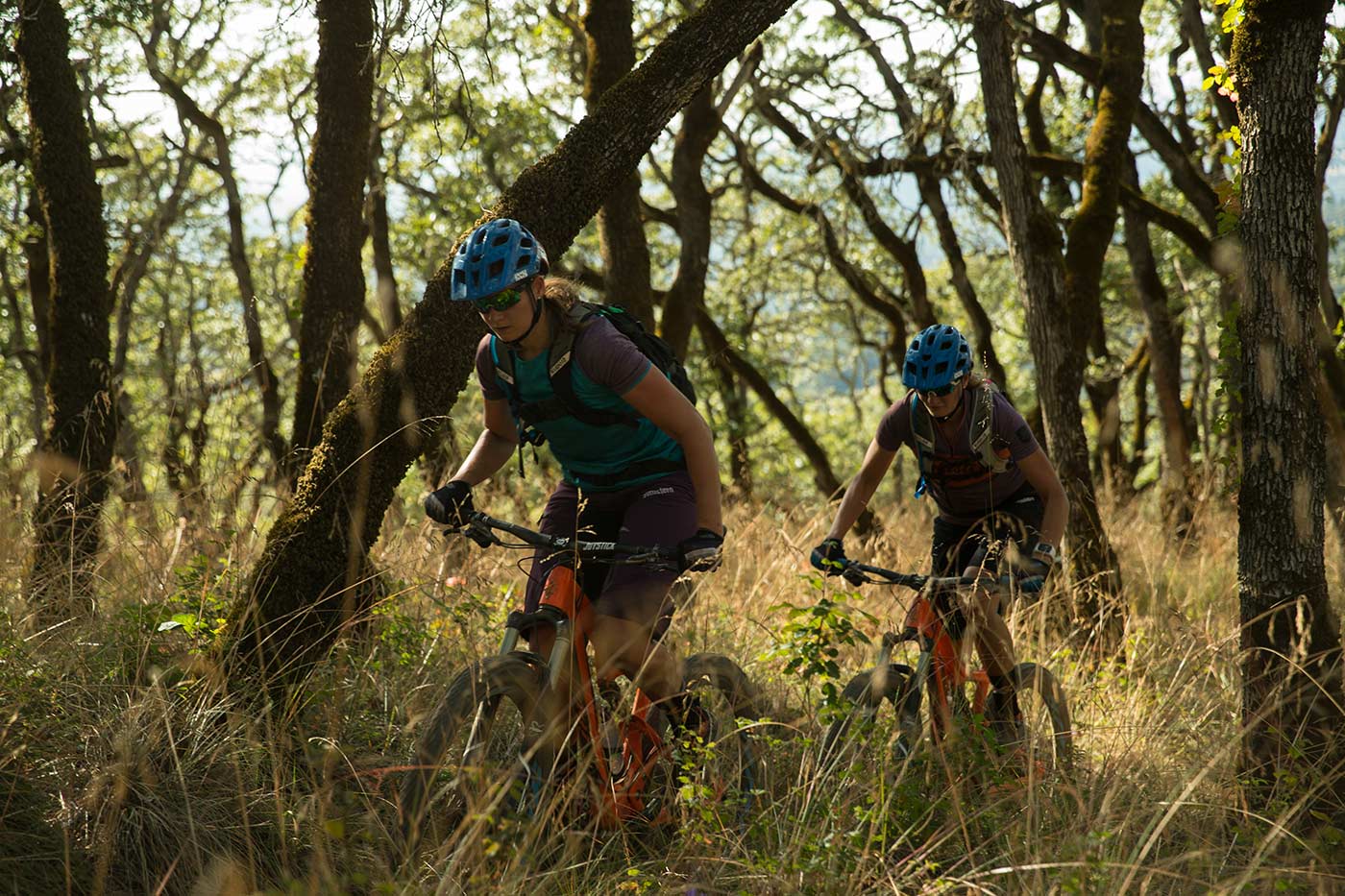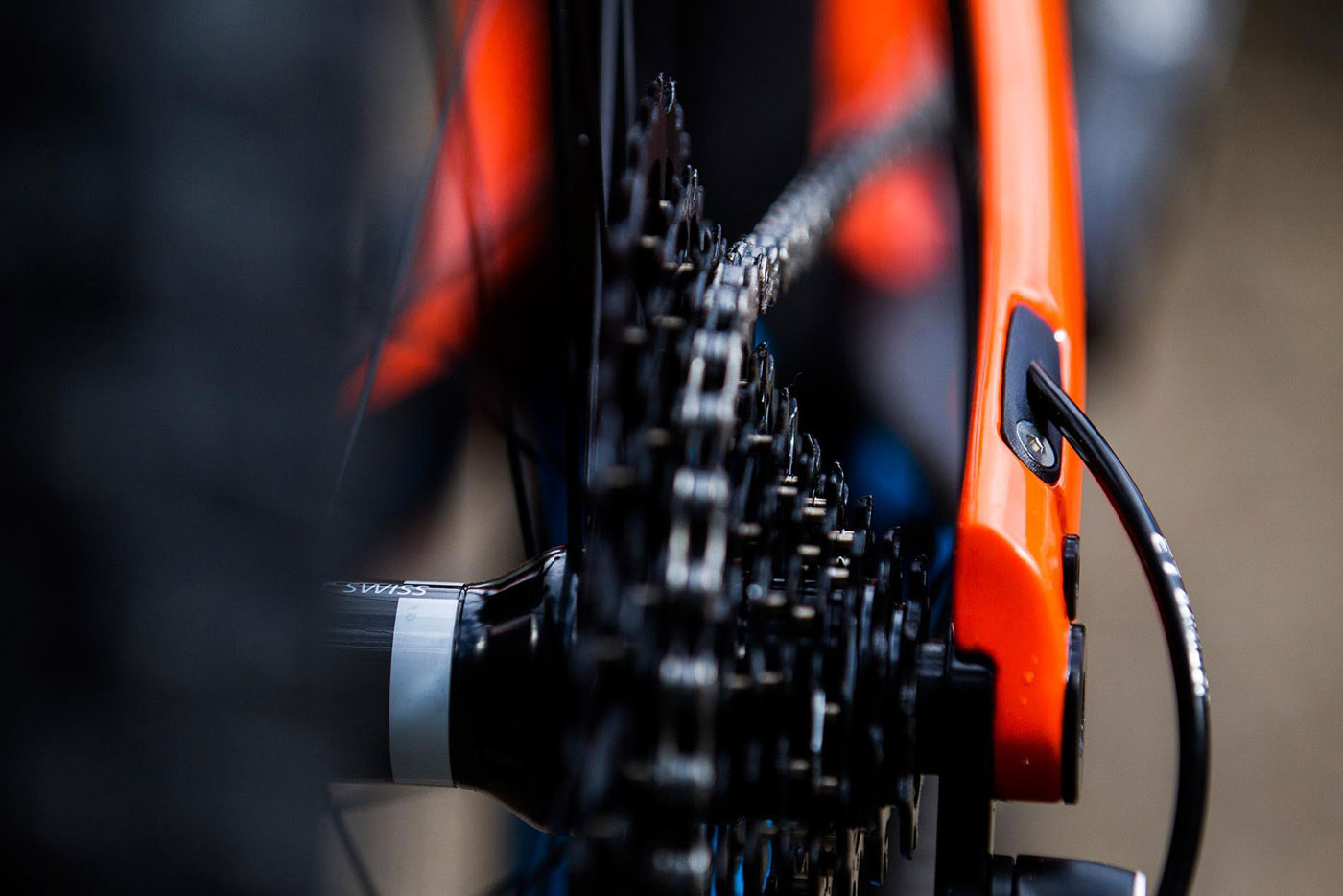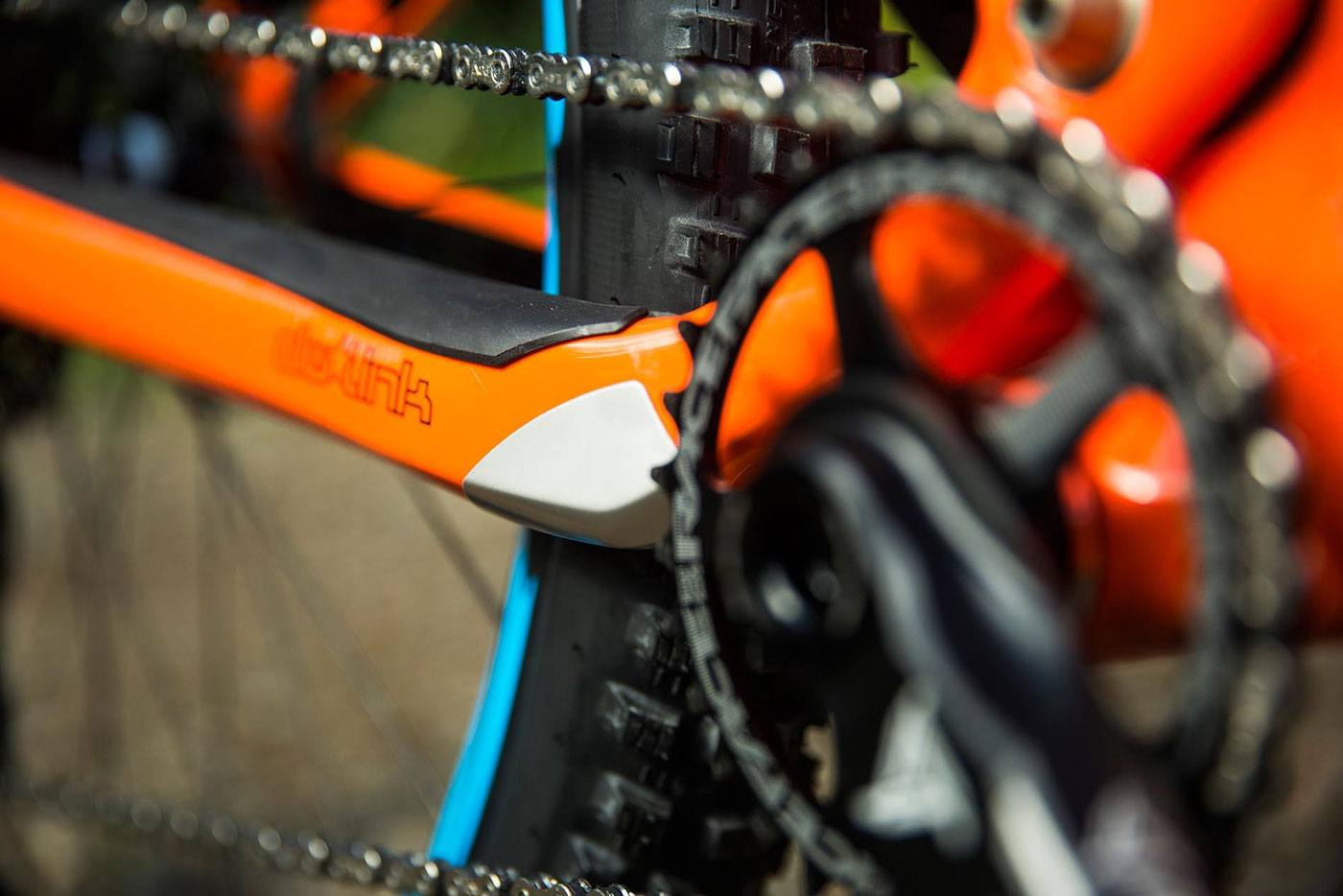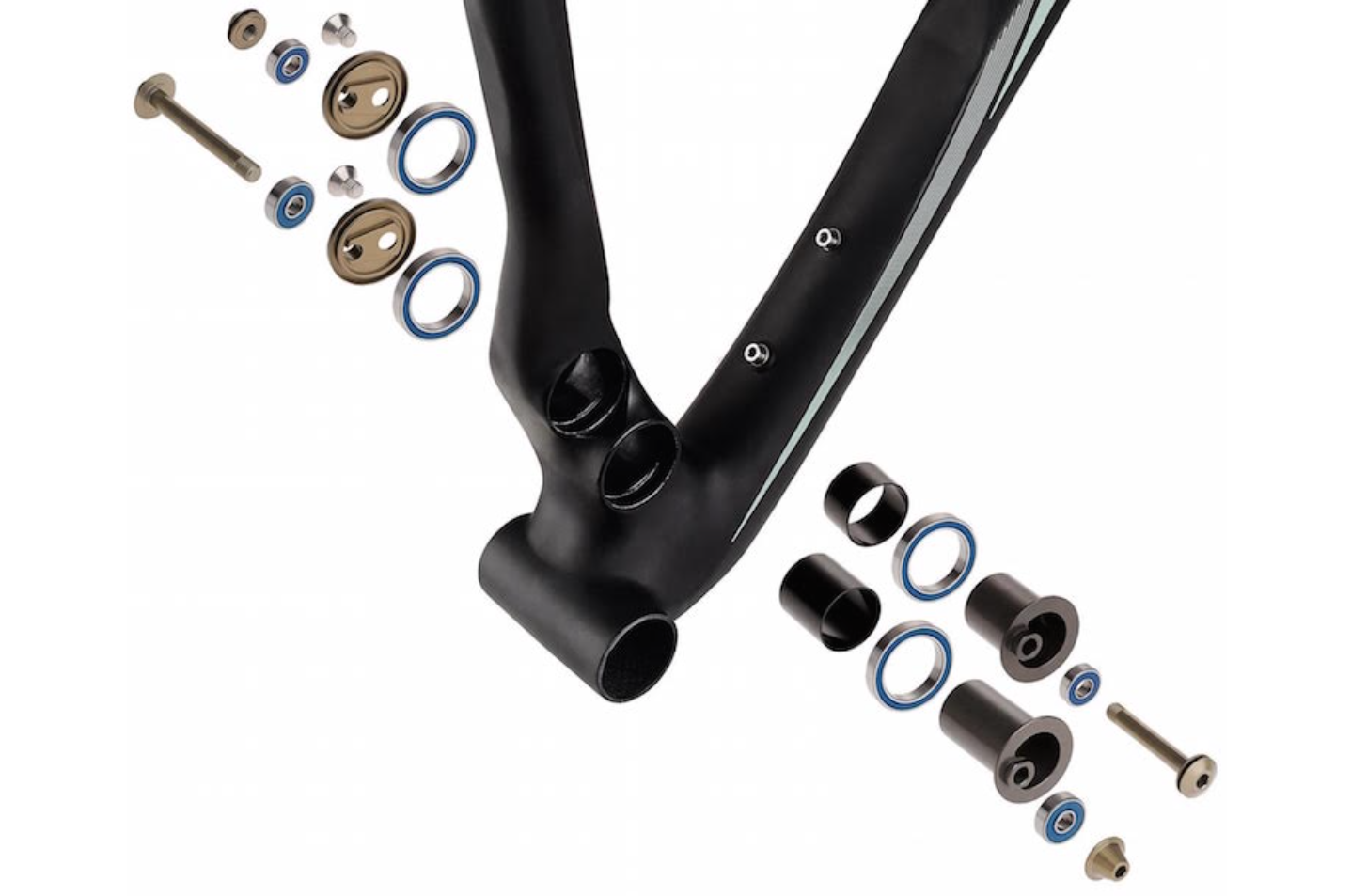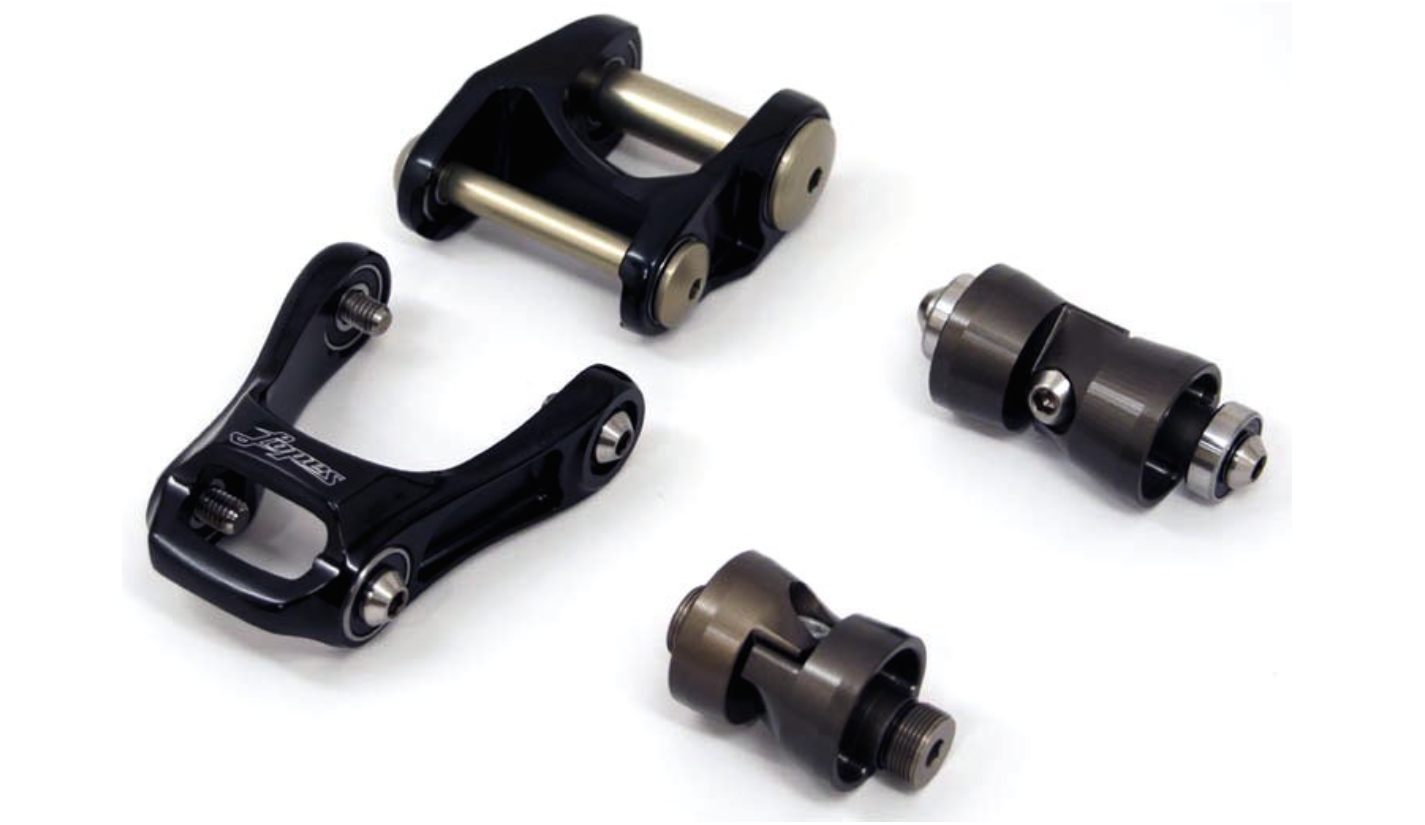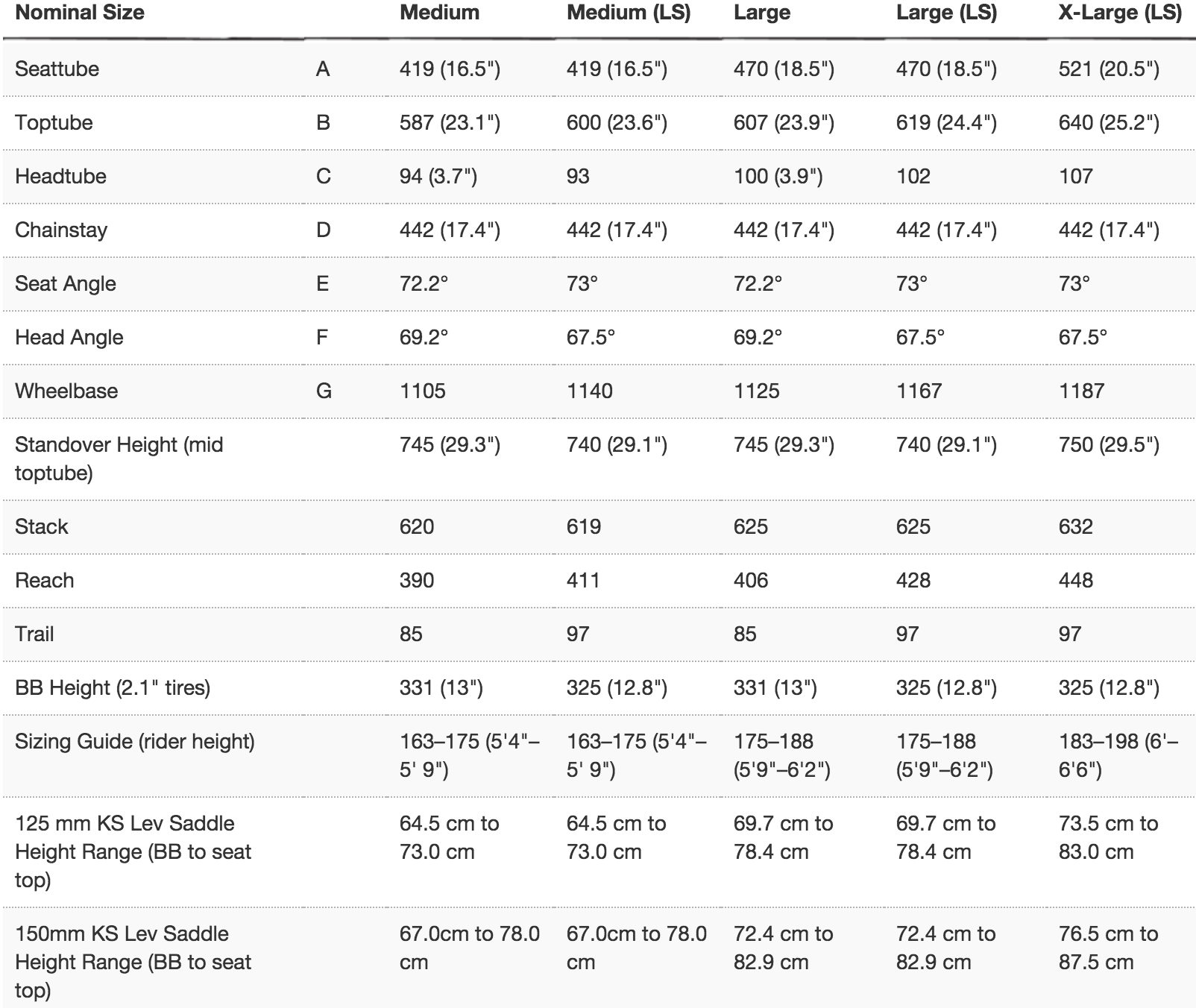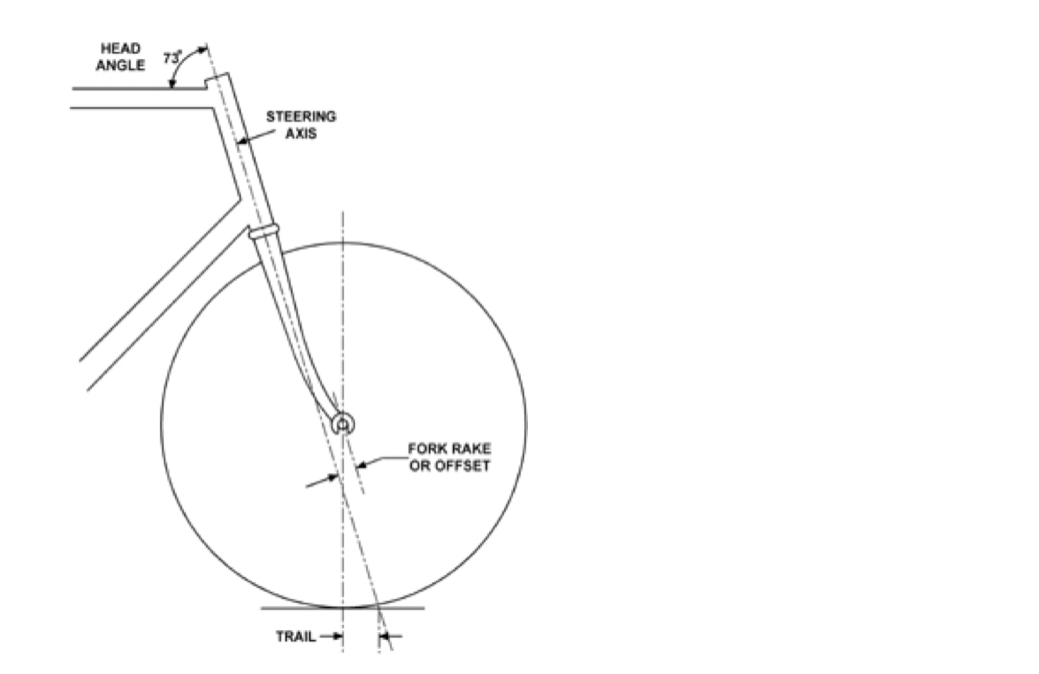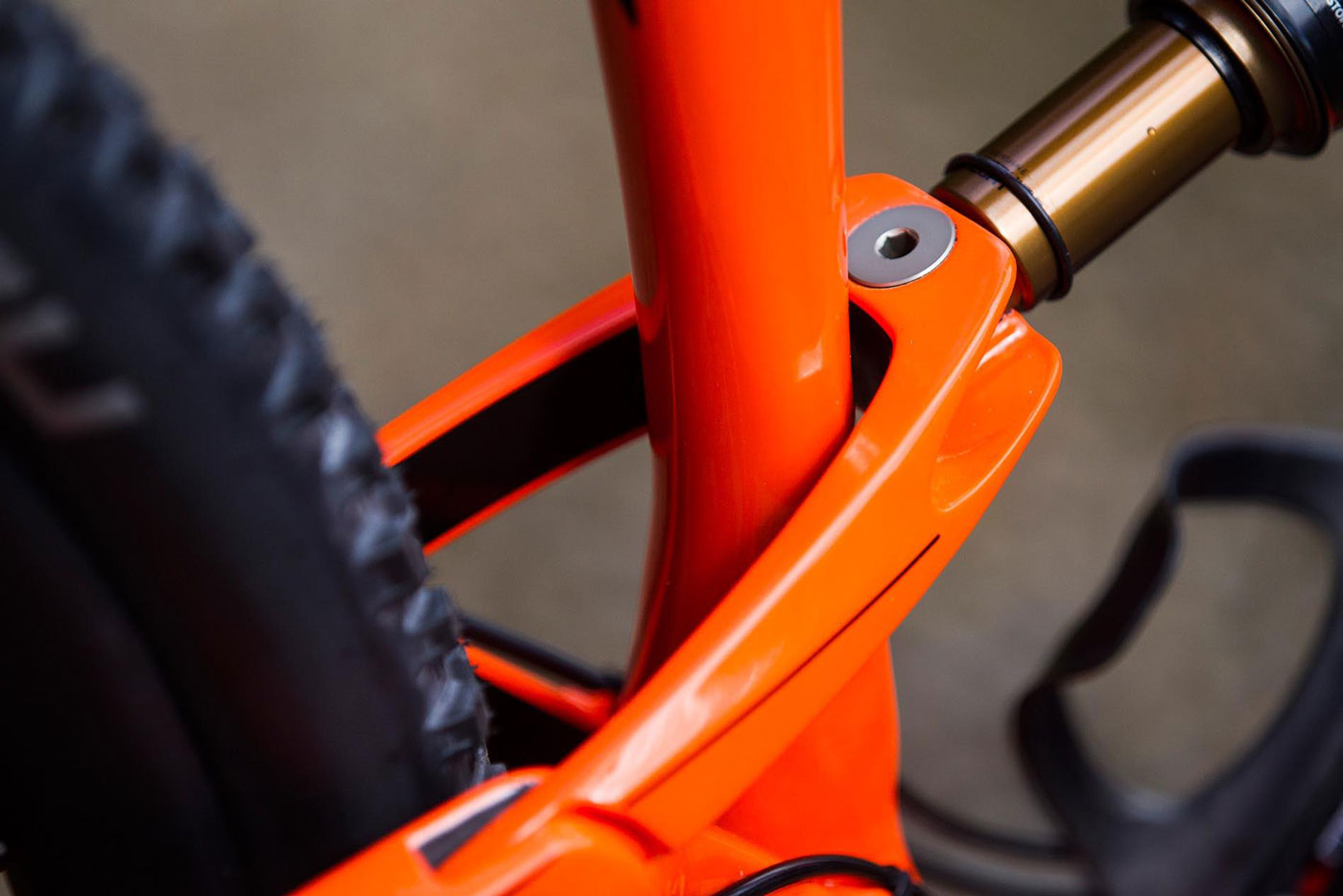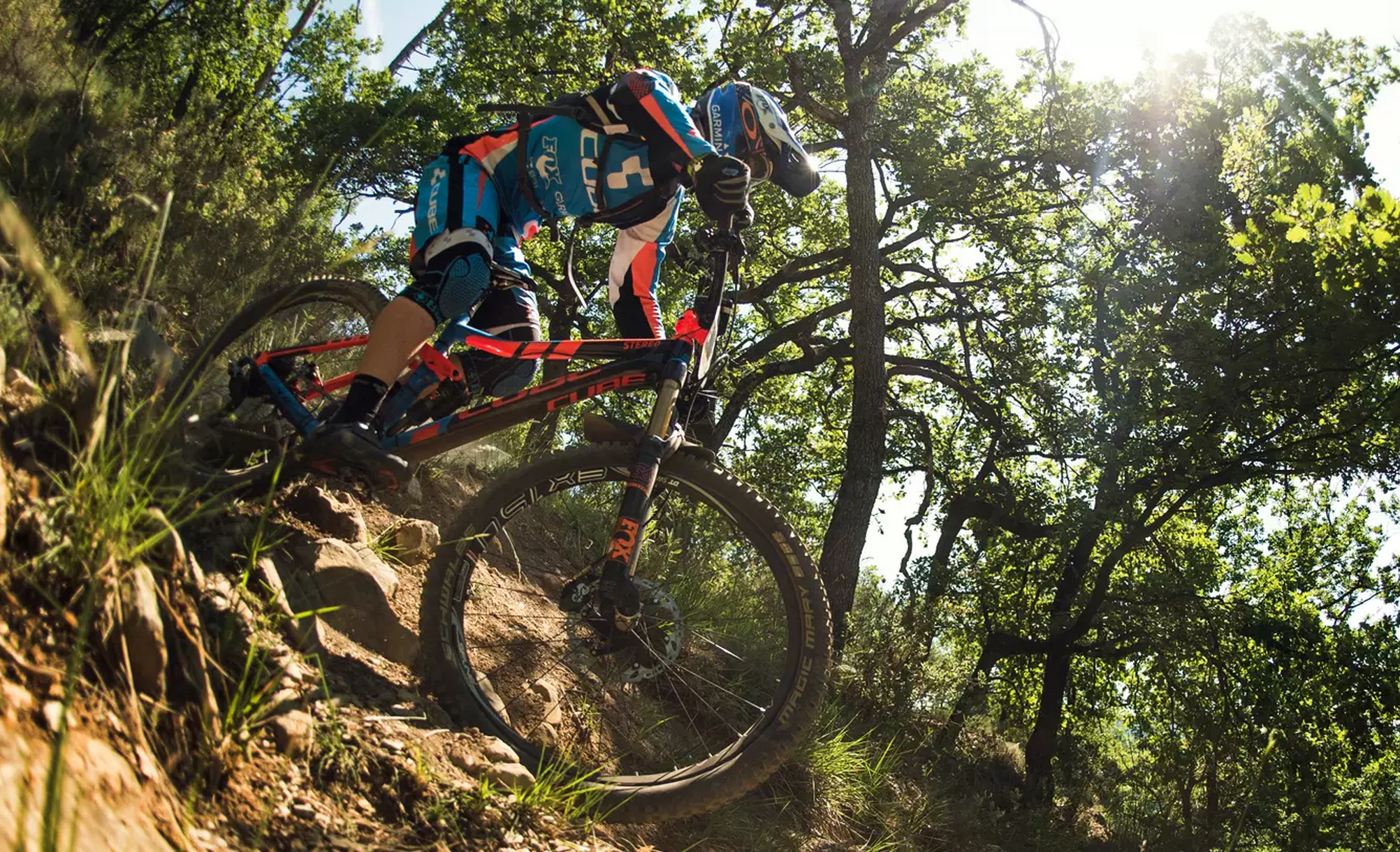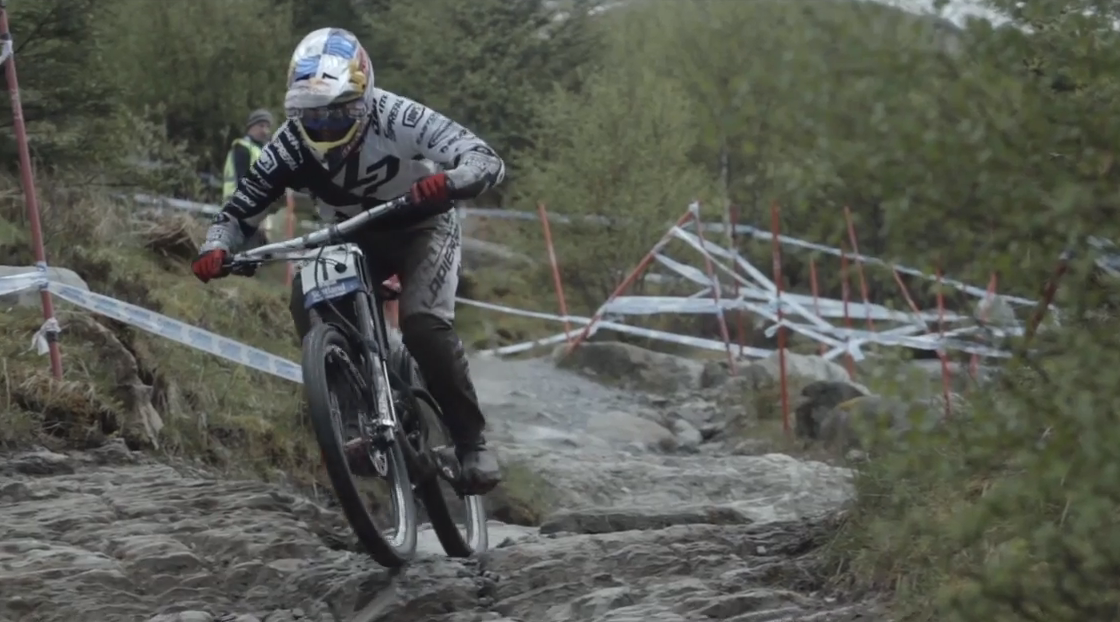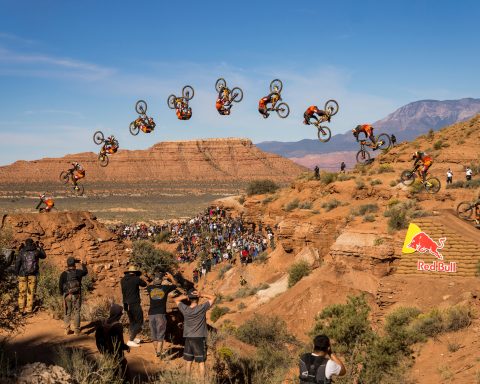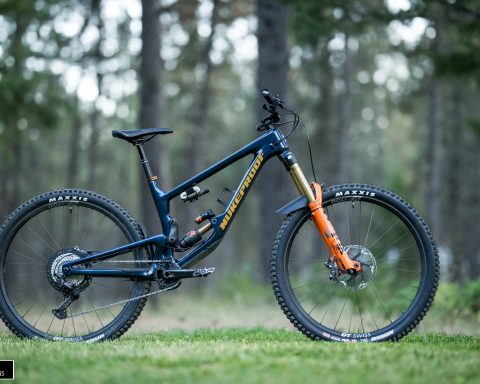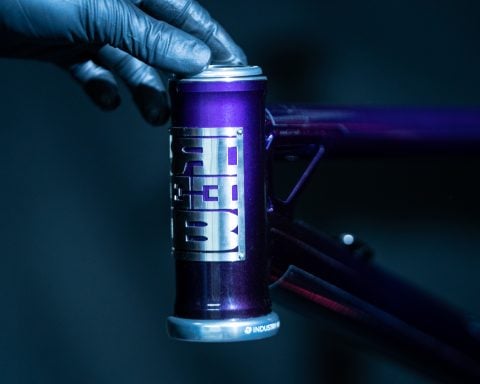Today Ibis unveiled their updates to the already wildly popular Ripley. The bike is now offered in two different framesets, with different geometry, spacing, etc. The overall layout has received some smart updates as well. Take a look at the overview below.
WHAT’S NEW IN THE NEW RIPLEY
• Two geometry options: The nimble geometry of the original or a new school long and slack version called the Ripley LS
• Internal cable routing using our flexible and easy to setup port system
• Increased tire clearance
• Threaded bottom bracket
• Seat mast lowered by 1/2” to accommodate today’s longer droppers
• Choice of Boost 148 (staring in November ’15) or 142mm x 12mm Shimano through axle (now)
• Stiffer eccentric cores
• New rubber molded chainstay and seatstay protection
• Two new colors (let’s call them “Tang” and “Black”)
FEATURES
• 120mm rear wheel dw-link travel
• Carbon fiber monocoque frame and swingarm
• 5.5 Pound frame* with Fox FLOAT DPS EVOL
• Approved for 120-140mm forks, 51mm rake is STRONGLY recommended
• Tapered head tube (suitable for various Cane Creeks & Chris King InSet 3)
• Shock Specs: Fox Factory FLOAT DPS 3pos w/Adj and EVOL Sleeve with Kashima Coat 184mm x 44mm
• Provision for internal cable-actuated or hydraulic adjustable seat posts
• Post mount rear brake mounts
• Shimano side swing front derailleur compatible.
* Frame weight is for a medium black with shock but without seat collar, rear axle, or water bottle bolts.
ABOUT THE NEW RIPLEY
In June of 2015 we introduced a fairly major update to the Ripley. We say fairly major because it involved cutting all new molds for the main triangle and heavily modifying the swingarm molds. We also added a second geometry option with a longer top tube and slacker head tube, that’s called the Ripley LS.
The new Ripley update incorporates changes Ripley owners have been asking for. People were using the bike for much more aggressive riding than its original intention. Because of the phenomenal dw-link suspension and 29er traction, enduro racers found they were faster than on more traditional enduro bikes on just about any terrain short of a ski slope. Then there’s the confidence-inspiring Ibis 941 wheels that we introduced in 2014, a game changer as far as traction and control go. That combined with huge improvements to mid travel forks and shocks that allowed people to go much faster required some addressing. So here’s what we’ve done:
strong>NEW! LONGER AND SLACKER GEOMETRY OPTION
The Ripley is now available in two geometry configurations. The Ripley LS features a 15mm longer top tube and is available in Medium, Large and XL sizes, and the LS also features a slack 67.5 degree head angle. This allows for shorter stems and adds stability at speed. The second geometry iteration is identical to the original Ripley. So the original nimble handling geometry that redefined how a 29er could corner is still available (in medium and large and large sizes).
MORE TIRE CLEARANCE
One of the things that happened since we originally designed the Ripley is that both tires and rims got bigger. A 2.1″ tire on a 21mm rim was pretty common but then people realized they liked a little more volume and 2.2″ – 2.35″ tires became popular. Then we blew up rim design with the wide carbon 941’s. The combination of the two meant we needed to update our clearances. Tire labels are notoriously meaningless, especially when it comes to height, but you can now use most 2.35″ tires on our 941 rims on the New Ripley and Ripley LS.
ALL NEW CABLE ROUTING
Based on the success of our cable port system used in the Tranny 29 and Mojo HD3, we have completely revised the cable routing system. The versatile port system is adaptable to just about any configuration of derailleurs and droppers you might have, just look at our cable port line up. You can now run internally routed droppers, mechanical or hydraulic. Additionally, the new Ripley is optimized for the new Shimano side pull front derailleur.
EXCEPTIONAL NEW FOX SUSPENSION
While we’ve done a lot of work on the frame itself we actually think that one of the most noticeable changes to the New Ripley is the latest Fox suspension. We have worked closely with Fox to develop a tune for the excellent 2016 Float DPS shock with EVOL sleeve. It provides more supple small bump sensitivity in the initial part of the stroke and then ramps up to provide better support in the mid to end stroke. The result is a plush ride that doesn’t wallow and pops off of jumps in a very controlled way. Translation: it’s super fun.
The fork makeover that happened this year was equally impactful. The new Float 34 weighs the same as last year’s 32, has greater stiffness and plushness, and doesn’t dive under braking. Both Ripleys will ship with a 130mm travel version of this fork.
NEW! 142 X 12MM SHIMANO THROUGH AXLE
The New Ripley features a lighter, simpler bolt on axle using the new Shimano 12mm axle standard. There is also an optional Shimano quick release axle that is secure, intuitive, and quiet.
SOON! BOOST 148
Beginning in November of 2015, you can order the New Ripley or the Ripley LS in the Boost 148 configuration. Currently there are almost no hub or wheel choices for the new Boost standard. We will have Boost 148 wheels for our bikes and for aftermarket in November. Note, we will continue to offer the 142 x 12mm rear axle standard after the Boost rear comes online.
NEW! BOTTOM BRACKET
We have changed to a threaded (73mm BSA) bottom bracket on the Ripley. While we like the press fit for its lightweight and stiff design, we are still seeing too much variation between the different manufacturers’ press in cups to get a consistently reliable fit.
ECCENTRICS-UPDATED
Over the past three years, we’ve made a few tweaks to the eccentrics. We found out with those changes to the cores (we affectionately call them “Gnar Cores”), that they are an effective place to add a bit of weight and gain stiffness. So for this update we further refined them. We moved some weight around and added only 2 grams but that which allowed us to up the torque spec on our eccentric shaft bolts. Since we were cutting new molds for the frame, we also added extra carbon around the eccentrics which gained us a bit more stiffness. All told, even with the bigger tire clearance cuts in the swingarm, the BB torsional stiffness went up 12%. The new cores are retrofittable to the original Ripley.
NEW! RUBBER MOLDED CHAINSTAY PROTECTION
Taking a cue from the Mojo HD3, we’ve built a beautiful molded chainstay and seatstay protector on the new Ripley. Yes, it retrofits to the original Ripley and yes it’s going to be in our web store soon.
ECCENTRICS-THE REST OF THE STORY
The heart of the Ripley is its dual-eccentric dw-link suspension. Instead of using external linkages like we do on our longer travel bikes, we were able to construct the Ripley with two small eccentrics, hidden inside the seat tube, which act as the suspension linkages. This clever system was conceived by Dave Weagle (he’s the dw in dw-link) in 2005, and we started development of the system in 2007. Since then, we have been building, testing refining, racing and simplifying the eccentric system. We had been developing a system with angular contact bushings, and at the same time we were developing a more traditional bearing version. In the end, the traditional bearing system was chosen for production for a variety of reasons.
The system that we finalized has fewer parts and uses readily available bearings. Along the way we kept reminding ourselves about one of our favorite quotes:
Everything should be made as simple as possible, but not simpler.
Albert Einstein
We feel that we succeeded.
There are many benefits to an eccentric linkage system. Because the bearings are located inside the seat tube, they are shielded from wheel spray and contamination. The look is very clean, as everything is hidden inside the frame. Additionally, the eccentric system is lighter than our external linkage systems.
A great benefit, particularly on the 29” platform is that the eccentrics let us build the bike with shorter chainstays, giving more room in the tight area around the rear tire and front derailleur.
Though the linkages are small and close together, the eccentrics allowed us to make a right side upright between the front of the chain and seat stay, resulting in added stiffness, critical for the larger loads of the big wheels. Not only that but we could mount the front derailleur to it so that it would move with the swingarm. This meant the chainstay didn’t have to be dropped to provide front derailleur clearance at bottom out. This is particularly important with the smaller gears that 29er’s typically use because you don’t want the chain dragging on the bottom of the chainstay. All in all, the eccentrics were a huge challenge that resulted in many nice benefits. Here’s an exploded view.
GEARING
We asked Dave Weagle to create suspension kinematics that would provide a very responsive feel, even sprinting out of the saddle in the big chainring. However we realized that there was no need for a 42 tooth ring big on a 29er so we are optimized for a 32–34 tooth big ring. This was unique at the time we made the decision but turned out to be perfect for the smaller doubles available now and all the 1X systems that use 28 to 36 rings.
GEOMETRY
We’ve owned, ridden and tested a lot of 29ers over the last few years. We liked some aspects but some of them we really disliked. We found that geometry was all over the map with the different bikes and that none of them delivered the snappy handling we all love with our current bikes. We’ll call these first generation 29ers and unfortunately they gave 29ers a bad name. The Ripley was the beginning of the second wave of 29ers that redefined what a 29er could do. ” I didn’t know a 29er could handle like that” is a common refrain around the Demo truck.
That nimble, responsive, and natural handling geometry is still available in the medium and large in the New Ripley. We’ve also got something for the new school kids out there. Once people started figuring out how capable the Ripley was they started going faster and bigger, and then started asking for more stability at high speed. For them we have the Ripley LS. We added 15mm to the top tube in each size and slackened the head angle out to 67.5º.
FORKS
Although the Ripley will still ride well with a shorter rake fork, the best handling is achieved with a 51 mm offset (rake) fork.
The 51 mm offset is available from Fox, X-Fusion and RockShox.
FOX
Note that the 51mm rake is what we spec for the 130mm travel Fox Float 34 that comes on the Ripley.
The forks we provide all have the proper offset and have decals that match the color of the bike.
If you are purchasing your own fork, here is the information you need to purchase the excellent Fox Float 34 we use on the Ripley:
Part number: 910-01-925
Description: 2016, 34, K, FLOAT, 29in, F-S, 130, 3Pos-Adj, FIT4, Matte Blk, Orange Logo, 15QRx100, 1.5 T, 51mm Rake, AM
X-FUSION
Also available from X-Fusion are the following forks, all are the correct 51mm offset:
Trace Taper 120mm 15mm White
Trace Taper 120mm 15mm Black
Trace Taper 140mm 15mm White
Trace Taper 140mm 15mm Black
ROCKSHOX
RockShox makes 46 and 51 mm offset in 29r 120 and 140 travel forks, but the 51 is not generally stocked by shops and distributors.
MOLDING TECHNOLOGY
The Ripley begins by molding a sacrificial mandrel in exactly the shape that we want the inside of the frame to be. That becomes the 3D template for the carbon so that everything can be precisely placed for a more consistent layup with no joints anywhere. What that means for you is a lighter and stronger frame, critical factors in hitting our targets for weight and stiffness.
Another new technology we introduced in the original Ripley can be found in the clevis and the swingarm uprights. We are using very lightweight syntactic foam glass microsphere cores in these locations. They add strength and rigidity at a very low weight in areas where you can’t remove the core from the hollow carbon parts. The new micro balloon cores are roughly half the weight of typical foam cores.
HEADSET
We like the tapered headset we’ve been using for a number of years now. It helps build a bike that is light and very stiff. The 1.5″ lower portion of the steerer provides an exceptionally rigid front-end platform. Combined with the through-axle fork, you’ll be amazed at the precision steering feedback you get, particularly when pushing hard.
You may use several different Cane Creek headsets or the Chris King InSet 3 headset.
SIDE SWING FRONT DERAILLEUR
The new Shimano side swing front derailleur moves all the pivots and cable anchors forward away from the tire and the cable path off of the seat tube. This allowed us to rework the right upright to give more tire clearance. A swingarm mounted front derailleur is always in the right place in relation to the chain and chainrings so front shifting is more consistent throughout the travel.
This mounting system also reduces chain slap since the chainstay can be located further from the chain. Also since the derailleur is moving with the chain there will be no chain rub at the extreme ends of the travel, particularly problematic with lower chainstay bikes and the smaller chainrings found on many 29ers.
TWO BOTTLES
We’ve made a provision on the Ripley for 2 water bottles, one inside the triangle and one below the down tube. It’s best to use a side-loading cage if using a large bottle inside the triangle, such as this one from Arundel
Frame only (with Fox DPS shock) : $2,900.00
Link to find Build Kit options.

